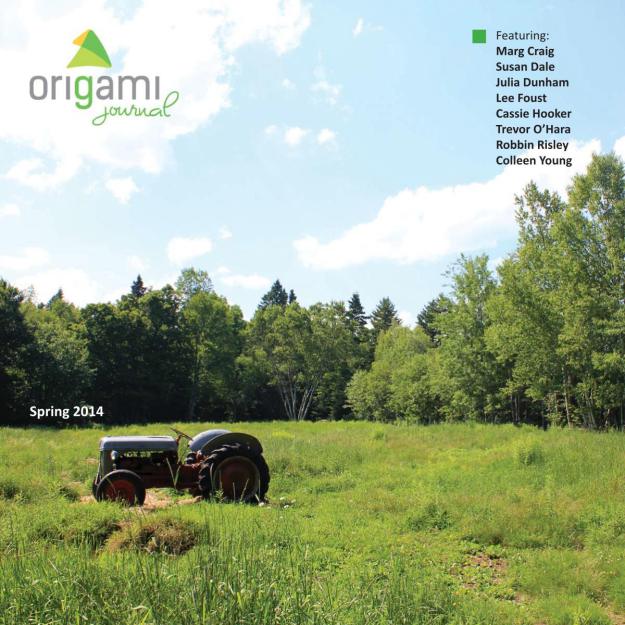Origami Journal – Spring 2014
In “Chasing Butterflies,” Cassie Hooker gives us a beautiful though gruesome idea of what one might imagine in those moments between when a person’s heart gives out and when she is revived. “She found herself standing on the edge of the sprawling void, utterly alone,” it begins. And as it continues, we discover this woman has scrapes all over her face, from which a delicate butterfly emerges and then returns. Its tone is very dreamlike, with a slow beat, gently carrying the reader through the piece. Origami Journal, which started in 2013, is a newer online quarterly that aims to publish work that captures the human experience.
In “Chasing Butterflies,” Cassie Hooker gives us a beautiful though gruesome idea of what one might imagine in those moments between when a person’s heart gives out and when she is revived. “She found herself standing on the edge of the sprawling void, utterly alone,” it begins. And as it continues, we discover this woman has scrapes all over her face, from which a delicate butterfly emerges and then returns. Its tone is very dreamlike, with a slow beat, gently carrying the reader through the piece.
Also included in the fiction section are Susan Dale’s “Before the Druids of Eld,” Lee Foust’s “Devin Wants to Make a Movie,” and Trevor O’Hara’s “God Has a Plan.” And while all are well-written and engaging, the fiction section in general seems to leave a little bit to be desired—all of the pieces seem to end without connecting to the reader in a deeper way. I was invested and interested in the worlds and characters created; I merely wanted more from them.
“Uncle Charlie’s Office” by Robbin Risley—the only nonfiction piece in this issue—demonstrates how she had to toughen up, from an early age, and it’s definitely the strongest prose piece. Her Uncle Charlie, who is in fact not her real uncle (“He had been a long time friend of my grandfather’s and used to babysit my mom when she was young. I was required to refer to him as ‘Uncle’ because, as he told me, ‘putting a handle on a name is how you show respect to your elders.’”), is a drunk and a drug-dealer, and Risley is the one ordered to make his drinks. And although she is careful to meet his demands, any screw-up and she is faced with hours of embarrassment. It is written with simple reflection, though these events that shaped her life aren’t as simple as that. I enjoyed this piece so much that I ended up reading it twice.
The issue ends with selections of photography that are certainly worth considering—especially the pieces by Julia Dunham—though I wonder how the experience would be different if they were interspersed throughout the issue rather than tacked onto the end. But certainly there is something to be said about the publication in general, which is easy-to-read in both online and PDF formats: the human experience is portrayed in the pieces.
[origamijournal.com]






